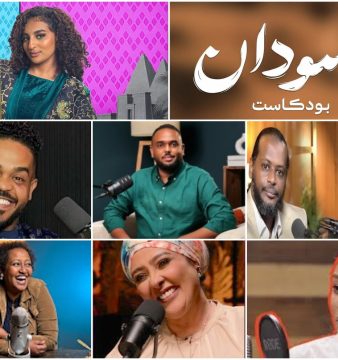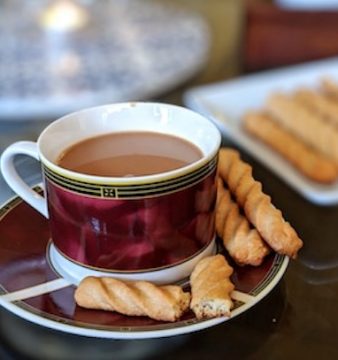Lives of Migrants: The Aftermath of War, Forced Migration And Resettlement

As war in Sudan continues to unfold between the Sudanese Armed Forces (SAF) and the paramilitary Rapid Support Forces (RSF), millions of people continue to flee the country. According to the UN, more than 7 million people have already been displaced. Many left with almost nothing, seeking sanctuary in neighbouring countries such as Egypt, South Sudan, Chad and Ethiopia. Numerous complications and difficulties, fear, distress and discomfort surrounds refugees as they aim to resettle and restart their lives elsewhere.
The consequences of the war between SAF and RSF have been catastrophic. Mainly taking place in the capital city, Khartoum – where most of the country’s main services, healthcare facilities, factories, schools and universities, and government buildings – the war has taken a toll on the country’s infrastructure. It is believed that it will take years to rebuild and fix the damage that has been done to the capital since the war began in April 2023.
In addition, the war has left more than 3 million people internally displaced, and more than 4 million outside the country, according to the UN. Most people have left with almost nothing especially those who escaped from fighting in Darfur to neighbouring states such as Chad.
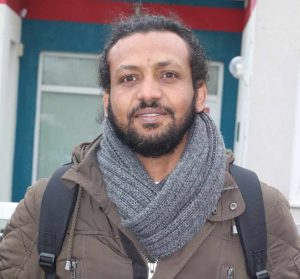
‘More than half of the Sudanese citizens are in a desperate need for food/medication and basic essential needs,’ said 36-year-old writer and journalist Ahmed Shekay, who volunteers with the UN, and is currently in Germany. Shekay is well versed in immigrant and refugee matters as he himself was an immigrant. In addition, his time working with the UN has given him enough experience to aid asylum seekers who are looking for a refuge in Europe.
‘Seeking refuge in itself causes a state of trauma that is hard to recover from’
‘Seeking refuge in itself causes a state of trauma that is hard to recover from. The sudden change of state from safety to panic/fear and distress puts the refugee in a poor mental state, especially war refugees like in Sudan’s case. Therefore; visiting a therapist is an essential step to help balance and remove trauma. This step helps a refugee think more clearly and make the appropriate decisions for this new chapter of life,’ said Shekay. As he continues to describe the hardships facing asylum seekers, he emphasises on the necessity of seeking help as an important first step to restabilising life after fleeing war.
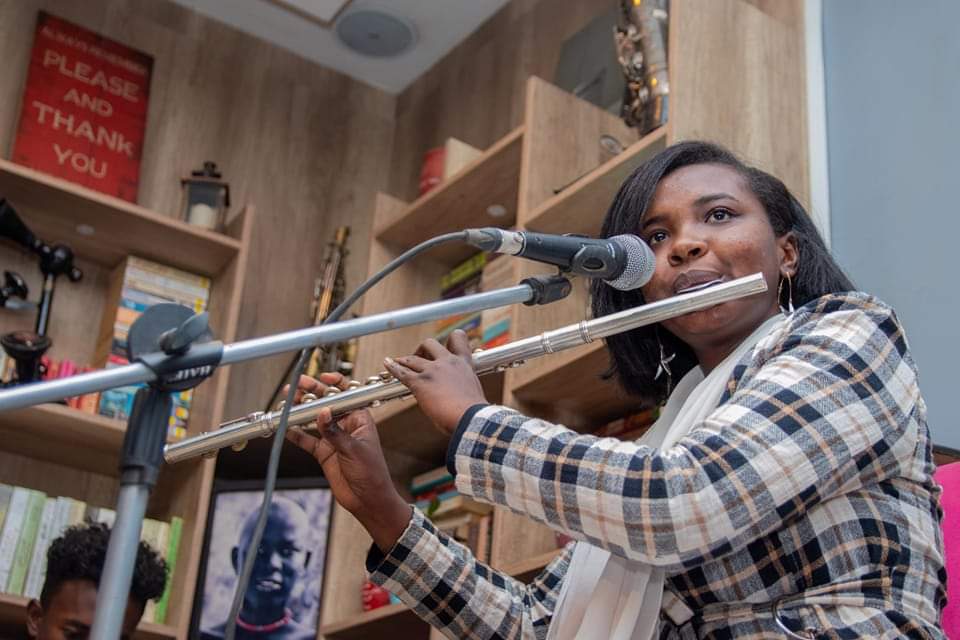
Somyea Salah Abdalhai, a 28-year-old Sudanese musician and teacher, fled a war-ridden Khartoum to Cairo, Egypt with her family. Being forced out of the comfort of her own home a month after war broke, and facing the danger, fear and sorrow that comes along with being a refugee was not an easy decision. ‘I am trying not to think right now, and just try to live each day on its own,’ she said as she navigates a new life. Abdalhai and her family lived in Al Deym, in the heart of Khartoum, a place known for its warm people and the closeness of everyone living in it. Being forced to leave such a place and dealing with the fallout of a most beloved city is defiantly hard for her. However, there was a calling that drove Abdalhai and her family to the north, over to Cairo. Egypt became the chosen destination for them as it was for many others fleeing war in Sudan. According to the UN, more than 350,000 people have fled from the war in Sudan to Egypt.
‘Unfortunately, therapy now is considered a luxury I cannot afford’
‘I am thinking about therapy, and hopefully I will get to visit a mental health professional very soon. Unfortunately, therapy now is considered a luxury I cannot afford, but part of me is working hard to be able to reward myself with a trip to the shrink,’ said Abdalhai. As a refugee, she has few resources, and although she understands her need for a mental health professional, she cannot afford to see one due to financial restraints.
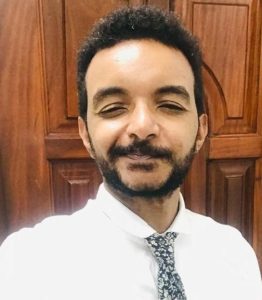
Mohammed Hussain, a 33-year-old medical laboratory specialist, fled Khartoum to Juba, South Sudan 60 days into war. According to UNHCR, over 6,800 Sudanese refugees have crossed the border to seek safety in South Sudan since the fighting erupted in mid-April. South Sudan was already hosting more than 300,000 refugees and asylum-seekers, mainly from Sudan, in addition to more than 2.2 million internally displaced people.
To recover from the events of escaping war, Hussain has been seeking aid from friends who are phycologists by profession. He views it as therapy session provided to him by those in his close circle. ‘I am very lucky to have several friends, who work as psychological counsellors. So I am using them as my personal therapists. However, I understand my need for therapy,’ he explained. Hussain is taking all the help he can get as he navigates a new life. For him, starting out in Juba was not easy, but he was able to acquire a job in his field of study, which he considers a blessing. ‘My first days in Juba were quite hard as I had to navigate a new town with almost nothing, seeking safety and looking for a job as well. Not long after my arrival, I was able to find a job as a director of a medical laboratory in a healthcare institution, which is my original field, after which my plans shifted for a lengthier stay,’ he explained.
‘The safe place a refugee gets is compared to the danger he escaped from. For example, refugee camps barely provide safety, and people miss out on the basic survival needs like food and clean water. It’s also not suitable for children. That’s why I recommend countries that allow refugees to stay in the big cites while still attached to the International Organisation for Migration (IOM) such as Egypt, South Sudan and several neighbouring countries. Meanwhile, deep levels of safety are provided for refugees once they are located in a secure, politically stable and economically sufficient country. Such countries are usually the first choice for IOM, and they are usually countries from the European Union (EU)/ Australia/ Canada and the US,’ Shekay explained.
‘The first thing a refugee is requested to do upon arrival to such country is to integrate with the new community and become part of the social fabric, learning the language is considered to be the easiest way in, especially since – apart from the UK – English language is not the official speaking language, and it’s not used in day-to-day activities,’ he added as he continues to elaborate on the important steps needed for refugees. Shekay can differentiate between temporary and permanent destinations for asylum seekers as his previous work with international NGOs has allowed him to deal with many cases of people seeking refuge in several countries.
‘The difficulties refugees face in Europe are more complex as they face a language barrier. The best step is to learn the country’s official language because it will make engaging and merging into society much easier. The biggest challenge facing immigrants and refugees in Europe is always balancing work and education. Most of Sudanese people living in Europe have families depending on them; therefore, they tend to skip education altogether and seek work instead. I’ve had to do that as well as I am supporting a family back home, and of course I aim to go back to my education once I have stabilised my situation,’ said Shekay.
However, for now, many choose to stay in countries close to Sudan. ‘Cairo for me represents safety now, and it’s good for my mental health to recover and think about my future,’ said Abdalhai. She describes how she can now finally get some peace to try and mend the wounds, and remedy a broken heart. As she continues to portray how life is unfolding for her in Egypt, Abdalhai expresses an overall positive feeling. In addition, she states that many Sudanese people, who have fled to Egypt as well as to other neighbouring countries, have similar positive feelings, stating that Sudan’s neighbouring countries have welcomed thousands of distressed Sudanese migrants and refugees.
Shekay applauds neighbouring countries for welcoming Sudanese refugees and believes that there has always been positive relations between Sudan and its neighboring countries. ‘I feel strongly towards our neighbouring countries for welcoming refugees. The relations between Sudan and its neighbours have always remained pleasant in these matters. Africa has always been turbulent to say the least, and several countries had wars before – Chad, South Sudan, Eritrea and Ethiopia – and Sudan welcomed thousands of them over the years,’ he said.
‘An immigrant is an individual who seeks life outside his own country for any number of reasons, such as education, work or an overall better circumstance’
‘An immigrant is an individual who seeks life outside his own country for any number of reasons, such as education, work or an overall better circumstance, and in this case, an immigrant has the benefit of choice unlike a refugee who’s being forced,’ said Shekay, elaborating on the differences between a refugee and an immigrant. According to UNHCR, a refugee is person who submits a request for safety to any of the international offices of the commissioner, or directly to the country of refuge if a person made it there. Until the request is accepted, the refugee remains under the care and protection of UNHCR, and the country provides all the basic life needs, unlike an immigrant who is completely dependent on himself and is fully liable. Most of Sudanese immigrants and refugees aim to relocate to France or the UK, according to Skekay’s personal experience with refugees.
For example, most of the Sudanese people who escaped war in Sudan to Egypt are not refugees, but immigrants. They entered the country with valid visas, and are paying rent and living completely dependent on themselves. The Egyptian government is not providing aid. However, people who filed for refuge at UNHCR will have a numbered file and will be treated as a refugee.
‘Sudan, as we know it, is gone!’ said Abdalhai. ‘I am not the same girl anymore, and I am frightened to go back home. Even thinking about returning is hard for me now as the country I love so much is so different for me. But I still love my home so much and I hope one day I get to return as myself again,’ she said. With those words, Abdalhai tries to close a heartbreaking chapter of her life as she moves forward while trying to hold on to the memories of her home.
‘I will go back to Sudan regardless of war. I will be serving Sudanese people with all my mental and physical strength’
As many decided to start out completely new and never look back, Hussain’s love for Sudan continues, believing he will return even if the war never stops. ‘If I managed to stabilise my financial situation, I will go back to Sudan regardless of war. I will be serving Sudanese people with all my mental and physical strength,’ he explained. Although uncertainty surrounds Sudan’s future, casting a dark shadow over the lives of millions of people in Sudan, people like Hussain are bright lights, casting the darkness away.
Life is a never-ending journey of ups and downs, never quite the same for long. Change is the only constant. As Sudan nears six months of war, it is important to realise people can lead stable lives.
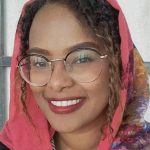
Tuqa A Hafeez is a 29-year-old architect based in Sudan, currently exploring the world of writing. She is a passionate thinker, creative person, and a film, music and book enthusiast with a huge appetite for knowledge.



